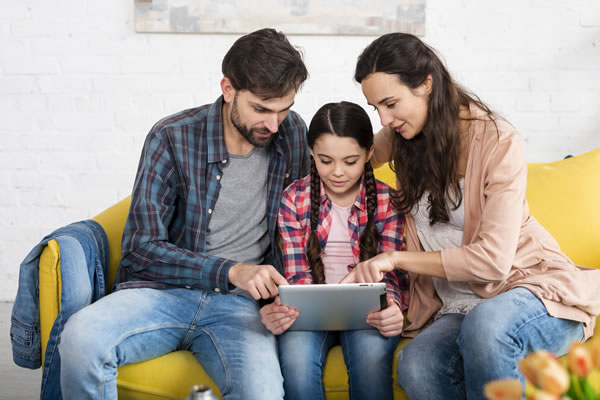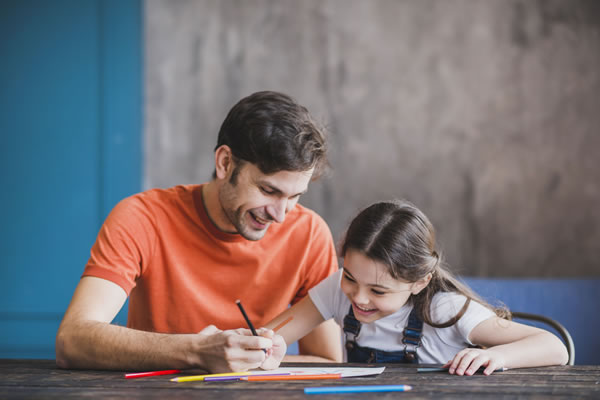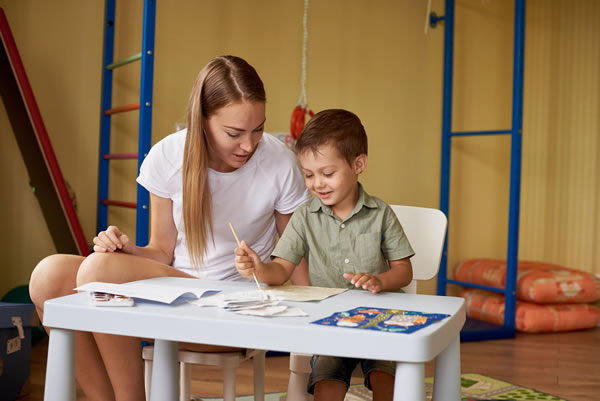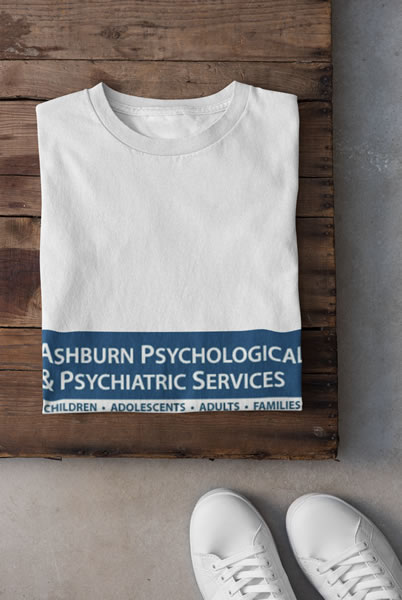5 Tips to Managing Parental Anger During COVID-19
While new cases for COVID-19 in Northern Virginia are reportedly lowering, the stress of the pandemic on parents still weighs heavy. Sure the school year has ended, but our children and teens have started the Summer off without camps, swimming pools, movie theaters, bowling alleys, play dates, etc. This has in turn put a lot of pressure on parents (many working from home) to keep everyone on schedule. Add to the mix, the additional demand to be there more – physically and emotionally – for our children, to be living together so closely, to be worrying more about our children’s safety as they begin to leave the house to socialize, and to continue to try to accept the many uncertainties of the virus (i.e. when will it end or when will we have a vaccine?) – and it can altogether feel like too much to manage at times.
As a child psychologist in private practice, I’ve spent the last few months supporting children and teens through the pandemic, and I’ve also been helping parents who are feeling stressed, overwhelmed and burned out. Many of the parents I see have told me that they are losing their temper and yelling at their children in ways that they hadn’t before. Overreacting to our children with anger is never a good thing, but we as parents are human and this has been an especially difficult time.
Why anger? Anger is sometimes referred to as a secondary emotion because we rely on it to protect ourselves from rawer and more primary emotions that at times are difficult to experience or express with vulnerability — fear, humiliation, frustration, rejection, disrespect, pressure, etc. I offer the following 5 tips to help parents to manage their anger better as we head into Summer.
Take care of yourself. With all of the stressors coming at us as parents these days, self-care needs to be a priority more than ever. Exercising, sleeping well, drinking in moderation (or not at all), carving out alone and supportive adult social time, and sticking to other healthy habits that matter to you is important to do on a daily basis.
Have a routine or schedule for your children and practice it with consistency. Getting control over what you can get control over should also serve to keep emotional upset down. Even when we enter Phase 3 in Northern Virginia, our children are still going to be at home a lot this Summer. Everyone does better with structure, even our children and teens, so putting together a daily plan that supports balanced activities for them is a good idea. For both children and teens, I’m a big fan of separating the day out into three parts where your children have a morning, daytime and evening routine, and those things can even be written down. Parents can also put chores and responsibilities on the sheets.
Strive to have reasonable expectations. Frustration can quickly lead to anger when we feel that our children or teens are not on top of what they should be. Yes, being productive and organized is good for our children, but with the world still being upside down, being tolerant and flexible is important too. So when it comes to a messy bedroom, stacks of dirty dishes in the sink, way too much screen or technology time, etc., instead of reacting with upset or anger to your children or teens, try to find the compromised win-win.
Celebrate your children’s successes. Children and teens can become more emotional during times of uncertainty, and it’s also not uncommon for them to emotionally regress or act-out when they’re feeling unsafe, which can be stressful and upsetting for parents. Because of this, it’s important for parents to focus on the good with their children and to high five or give big hugs when your children do well. Creating a daily list of the good things that your children do is a loving way to acknowledge their victories (however small), and it will put you in a positive frame of mind as a parent.
Breathe. This isn’t going to be the Summer your children imagined for themselves and that can be upsetting to you as parents. While you can’t make COVID-19 go away quicker for them, you can do the best that you can in being patient, compassionate and loving – and you can also do the same for yourself. When it all becomes too much for you emotionally as a parent, there’s no shame in admitting that or to disengaging from the moment and returning when calm. We’ve all needed to take a lot of deep breathes since the start of this, and we will likely need to continue to do that this Summer.
Here’s to having a great Summer!
Michael Oberschneider, Psy.D. is a clinical psychologist in private practice. He has been featured on CNN, Good Morning America and several other outlets. He can be reached at 703 723-2999, and is located at 44095 Pipeline Plaza, Suite 240, Ashburn, VA 20147.










